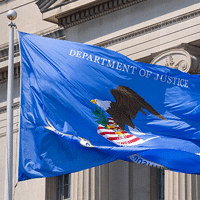Mississippi News
Mississippi universities got millions in pandemic relief. It’s hard to know how they spent it.
Mississippi universities got millions in pandemic relief. It’s hard to know how they spent it.
Mississippi’s eight public universities got hundreds of millions of dollars from the federal government to keep their doors open during the COVID-19 pandemic.
Nearly two years later, it’s hard to get a clear picture of what the universities did with those dollars, despite reporting requirements from the U.S. Department of Education agency tasked with overseeing the funds.
A review by Mississippi Today found several factors contribute to the patchwork transparency and accountability:
- Quarterly reports tracking this spending, which are supposed to be maintained on a university’s website, are often not posted online.
- Millions of dollars are recorded on the forms in vague categories, such as “campus safety” or “housing,” with no supporting notes describing what the money was actually used for.
- Spending totals detailed by the universities do not match what is reported in the database maintained by the federal government, making it hard for students and faculty to determine the true amount spent by their university.
The stakes are high in accounting for these dollars in real time, because they were intended to help colleges, and the students they serve, to endure financial challenges due to the pandemic, said K.B. Melear, a professor of higher education finance at University of Mississippi.
“These monies are incredibly important for Mississippi institutions of higher education, especially now … as we move through the various challenges faced by the pandemic,” he said.
This uneven accounting is likely not unique to Mississippi. Last year, ProPublica explored how the federal government’s limited tracking has frustrated efforts by K-12 officials across the country to follow how their districts spent these COVID funds.
The U.S. Department of Education did not return Mississippi Today’s request for comment by press time.
The money in question comes from the Higher Education Emergency Relief Fund, or HEERF, a dedicated pool of dollars in each of the federal government’s three pandemic stimulus packages.
For their part, Mississippi’s eight public universities received $508 million. The universities were required to put at least half of that into students’ pockets in the form of direct payments.
The remaining funds — around $250 million — could be used for “institutional expenses” due to COVID-19, a broad category that encompasses spending on personal protective equipment, dorm closures, or technology for virtual learning.
Every three months, the Office of Postsecondary Education, a U.S. Department of Education agency, requires colleges and universities to publish quarterly reports in the form of spreadsheets to account for their institutional spending. In theory, this provides a clear picture of how a university has spent its institutional dollars. The spreadsheets contain 16 categories the universities can use to classify their spending, such as “providing or subsidizing the costs of high speed internet to students or faculty to transition to an online environment.”
The universities are supposed to go into further detail about how they’re spending the money in certain categories, but many neglected to do so. For one category, labeled “other uses,” the form instructs universities to provide additional information. Of the $7.6 million allocated to “other uses,” the universities did not provide information for about $3.3 million, according to a Mississippi Today analysis.
In one another, the University of Southern Mississippi recorded spending $6.08 million on “replacing lost revenue” from non-tuition sources in a December 2021 report. That category can encompass anything from spending on a canceled theatrical performance to lost parking lot revenue. But nowhere in the report does USM say what, specifically, it spent that $6 million on.
It can be hard to get a clear picture even when the universities do describe their spending. In a September 2021 report, Mississippi State University said it put $3.8 million toward lost revenue. In the column meant for more detail, MSU simply put “Housing and university florist.”
Even though the quarterly spreadsheets are supposed to be easily accessible on a university’s website, that is often not the case in Mississippi — another barrier to transparency. Mississippi Today had to ask for quarterly reports that were not posted online from the following universities: Alcorn State University, Jackson State University, Mississippi University for Women, University of Mississippi, and University of Southern Mississippi. As of this article’s publication, Mississippi Today is waiting on two reports from Alcorn and Jackson State.
These reporting requirements are lax in part because the federal government’s goal with these stimulus funds was to help students stay in college and help colleges keep their doors open, said Robert Kelchen, a professor of higher education finance at University of Tennessee.
“People were worried about colleges laying off employees or closing,” he said. “The main priority wasn’t necessarily tremendous oversight — it was to get the money out the door and have enough oversight that colleges aren’t ripping off taxpayers.”
To Kelchen’s point, it’s also hard to determine the total amount of HEERF funds spent by Mississippi universities.
The U.S. Department of Education maintains a database, called the “transparency portal,” of all education funds allocated by the three pandemic relief bills. The goal of the database is “to provide the public with transparent, searchable, and understandable data.”
According to the transparency portal, Mississippi universities have spent about $129 million in federal stimulus funds on institutional expenses as of Nov. 30, 2021.
The quarterly reports paint a different picture. Mississippi Today added up the spending reported in spreadsheets from all eight universities. According to Mississippi Today’s analysis, the universities collectively spent $198 million in institutional funds as of Dec. 31, 2021 — a $70 million gap.
The numbers don’t match for individual universities, either. A review of every quarterly report posted by Mississippi University for Women shows the school spent about $2.3 million in institutional funds as of Sept. 30, 2021. The U.S. Department of Education says MUW spent about $1.2 million as of Nov. 31, 2021.
Tyler Wheat, MUW’s communications director, told Mississippi Today that the quarterly reports are submitted to the department and the difference in numbers is primarily due to timing.
“Our quarterly reports on the website are correct,” he said. The U.S. Department of Education database “only shows the amount they have paid in reimbursement” which “are not requested until after the expenses have incurred.”
This article first appeared on Mississippi Today and is republished here under a Creative Commons license.
Mississippi News
Events happening this weekend in Mississippi: April 25-27
SUMMARY: This weekend in Mississippi (April 25-27) features a variety of events across Central and Pine Belt regions. Highlights include MiraGotSoul at Vibe Studio in Jackson, a community Dinner and Movie in Clinton, and the Natchez Kite Festival. Enjoy live performances with Sweet Lizzy Project in Natchez and the New Bourbon Street Jazz Band in Clinton. Family-friendly activities include the Native Plant Fest and Community Farmers Market in Jackson. In Hattiesburg, catch the Henry Cho tour and the Downtown Crawfish Jam Music Festival. Overall, it’s a weekend full of entertainment, culture, and fun activities for all ages.
The post Events happening this weekend in Mississippi: April 25-27 appeared first on www.wjtv.com
Mississippi News
Events happening this weekend in Mississippi: April 18-20
SUMMARY: This weekend (April 18-20), Mississippi offers a variety of events for all ages. In Jackson, enjoy Food Truck Friday, a jazz concert, free outdoor movie screenings, and multiple exhibitions including “Of Salt and Spirit” and “Hurricane Katrina: Mississippi Remembers.” For family fun, there’s an Easter Egg Hunt at the Ag Museum and “Bunnies & Butterflies” at MCM. Natchez features the Spring Pilgrimage, Lafayette’s 200th anniversary celebration, and a farmers market. In the Pine Belt, highlights include Live at Five, a Spring Candle-Making Workshop, and Easter events at the Hattiesburg Zoo. Don’t miss the Bluff City Block Party and more!
The post Events happening this weekend in Mississippi: April 18-20 appeared first on www.wjtv.com
Mississippi News
Events happening this weekend in Mississippi: April 11-13
SUMMARY: This weekend in Mississippi (April 11-13), enjoy a variety of events across the state. Highlights include the Eudora Welty Birthday Bash in Jackson, Trivia Night at the Mississippi Museum of Natural Science, and Boots & Bling Fundraiser in Natchez. For family fun, check out the Bunny Bonanza in Jackson or the Easter Egg Hunt in Clinton. The Natchez Concours d’Elegance Car Show and Stranger Than Fiction Film Festival offer cultural experiences, while the 12th Annual Dragon Boat Regatta in Ridgeland and the Hub City Classic Car Show in Hattiesburg provide exciting activities for all ages.
The post Events happening this weekend in Mississippi: April 11-13 appeared first on www.wjtv.com
-

 News from the South - Florida News Feed6 days ago
News from the South - Florida News Feed6 days agoJim talks with Rep. Robert Andrade about his investigation into the Hope Florida Foundation
-

 News from the South - Alabama News Feed5 days ago
News from the South - Alabama News Feed5 days agoPrayer Vigil Held for Ronald Dumas Jr., Family Continues to Pray for His Return | April 21, 2025 | N
-

 Mississippi Today6 days ago
Mississippi Today6 days ago‘Trainwreck on the horizon’: The costly pains of Mississippi’s small water and sewer systems
-

 News from the South - Florida News Feed5 days ago
News from the South - Florida News Feed5 days agoTrump touts manufacturing while undercutting state efforts to help factories
-

 News from the South - Texas News Feed6 days ago
News from the South - Texas News Feed6 days agoMeteorologist Chita Craft is tracking a Severe Thunderstorm Warning that's in effect now
-

 News from the South - Virginia News Feed5 days ago
News from the South - Virginia News Feed5 days agoTaking video of military bases using drones could be outlawed | Virginia
-

 News from the South - Florida News Feed5 days ago
News from the South - Florida News Feed5 days agoFederal report due on Lumbee Tribe of North Carolina’s path to recognition as a tribal nation
-

 News from the South - Arkansas News Feed6 days ago
News from the South - Arkansas News Feed6 days agoAs country grows more polarized, America needs unity, the ‘Oklahoma Standard,’ Bill Clinton says


















































